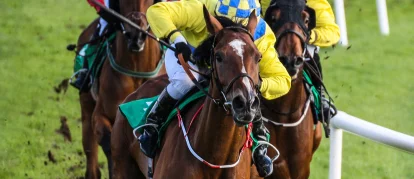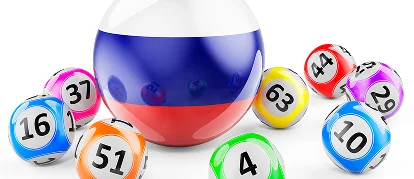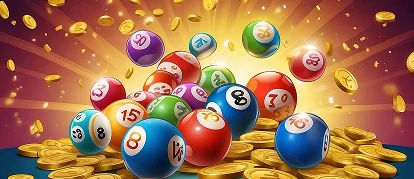
Sunbet Racing: How to Pick the Winner of a Horse Race

Horse racing is arguably the hardest sport to bet on in the world; this is simply because you are betting on an animal.
Like humans, animals sometimes wake up not feeling well. The main difference is that humans can express this. With a horse, it is hard to tell unless they show clear symptoms.
Table of Contents:
- How to Pick a Winning Horse: Key Factors.
- Conclusion: Key Takeaways on Picking a Winning Horse.
- Horse Race Betting Frequently Asked Questions.
Despite the challenges faced when betting on horse racing, this Sunbet piece will help you identify a potential winner before placing your next bet.
How to Pick a Winning Horse: Key Factors
Five key factors influence picking a winning horse. These factors include the odds, weight of the horse, past performances, the type of race, and the barrier draw.
Below, we will discuss each facet in depth. Saddle up!
The Odds
When betting on a horse, odds are a particularly important indicator. Lower odds mean the horse is more likely to win the race.
The odds are set by bookmakers and fluctuate according to how much money the market bets on them. It is important to look at the odds when the bookmaker opens the market and when it gets closer to the race.
By doing this, you will see how the odds of the runners fluctuate. When you see a massive drop in the odds, it can be a good indication for you to take a bet on that specific horse.
When you see a horse’s odds go up, especially for favourites, it is a good sign to consider other factors.
Weight
Every horse in a race carries a specific weight determined by their merit rating. In the horse racing world, a merit rating will determine the weight they carry in a race.
Their performances after three races will determine the horse's initial merit rating. Thereafter, this will change after each performance. The weight they carry depends on how well they do and the race they are in.
This is just to ensure that there are no advantages for horses who are far superior to others. When placing a bet on a runner, it is vital to ensure that you are betting on a horse that is well-weighted and in conformity with their merit rating.
Past Performances & Form
Past performances and form are huge indicators when picking your selection. If a horse has done well in their last few races, they are more than likely to continue their run of form into the next race.
It is important when looking at their past performances to try and see how they will fit into the current race. Check the distance. If it is within 200 meters of their last race and they did well before, consider the runner for a possible bet.
The past performance and form also include the jockey’s past performances as well as the trainer's. These will serve as massive indicators when betting on the runners.
Type of Race
There are several types of races throughout the year that have been broken into four main categories.
- Lower Handicap Races (everyday races).
- Grade 1 Races,
- Grade 2 Races, and
- Grade 3 Races.
The grade races are the pinnacle of the sport of horse racing.
It is important to note that a horse running in the top six in a Grade 1 race is better than a horse that has won five times in lower handicap races. When studying form, looking at the type of race a horse has been in is vital to the success of the better.
To simplify it, let us compare it to football:
- A Grade 1 race is the World Cup Final.
- A Grade 2 race is the Champions League Final.
- A Grade 3 race is a game in Europe’s top 5 leagues, and anything lower than that is other lower leagues.
The Barrier Draw?
Although sometimes overlooked, the barrier draw can be especially important when choosing your winning horse on race day.
If the race is on a straight course, the barrier draw for the horse does not matter. This is because there are no turns involved.
If the race has a bend, the lower-numbered draws closer to the fence sometimes have a slight advantage over the higher-numbered draws.
Conclusion: Key Takeaways on Picking a Winning Horse
As a beginner, it is important to know that many factors affect horse racing bets. The odds, weight, form, and type of race are the most important to consider every run.
It is also important to remember that, even if you have all of the information available, you are betting on an animal, and animals, like humans, have bad days.
The main takeaway is that horse racing is electrifying, and unlike other sports where you can watch once and grasp all the rules, it does require a certain level of patience for you to become profitable when betting.
What are you waiting for? Log in or SIGN UP and get betting on a horse NOW with Sunbet Racing and discover a world of possibilities.
Written by: Venal Naidu
Horse Race Betting Frequently Asked Questions
As promised, Sunbet is here to aid and ease potentially new punters into horse racing while providing informative tips for seasoned bettors. Having said that, below are some of the most commonly asked questions when betting on horses.
What is the Easiest Horse Bet?
There is no easy bet to place, but there are bets that are more likely to land than others.
When considering the above factors, these are the most likely bets that could land you some returns:
- Win, and
- Place.
These are some of the easiest punts you can take out on the favourites. Each bet has a different meaning.
The meaning for each bet is as follows:
- Win: A Win bet is placed on the horse that a punter believes will cross the finish line first.
- Place: Place bets allow for the chosen runner to finish the race in first, second, or third place in the standings, with the payout determined by the number of runners in the field.
What are the Top 3 Bets in Horse Racing?
In South African horse racing, the top 3 bets typically refers to a Quartet, Trifecta, and Pick 6, which all have different winning possibilities for the punter.
Below are explanations of each bet works in SA horse racing:
- Quartet: A Quartet bet allows you to pick four or more horses to finish in the top four positions, in any order. Since the order doesn’t matter, you are covering all possible combinations of your chosen horses finishing first, second, third, and fourth.
- Pick 6: A popular bet in South Africa where you must select the winners of six consecutive races.
- Trifecta: With this bet, you pick the first, second, and third-place finishers in a horse race in their exact order. Offers high payouts when predicted correctly.
How Do You Calculate Your Horse Winnings?
Calculating your horse winnings is simple. Multiplying the odds by the stake amount is a simple method to determine your winnings on a bet.
An example of calculating the odds:
Betting on a horse named Cousin Casey to win. The odds for Cousin Casey are 5.0 in decimal terms. This means for every R1 you bet; you’ll get back R5 in total (which includes my stake).
So, if you place a R10 bet, you’ll win R50 if Cousin Casey crosses the finish line first.
If you were looking at this in fractional odds, 5.0 would be the same as 4/1. This means for every R1 you bet; you’ll win R4 in profit.
So, with a R10 bet, you’d get R40 profit, plus your original R10 stake, giving you the same total of R50.
Can a Horse Win a Race Without a Rider?
No, a horse cannot win a race without its jockey. The horse can and will most likely finish the race when its jockey has been lost during the race.
However, the horse will be disqualified from any potential winning bets. The reason for this is that they are no longer eligible to win because they do not carry the required weight without the rider.
What’s Another Word for Racehorse?
There are a few variants for racehorse synonyms. The selection here is some of the most commonly used among expert punters and horse racing experts.
They are as follows:
- Thoroughbred,
- Bloodstock,
- Racer,
- Steed, and
- Steeplechaser.
How Many Racecourses Are There in South Africa?
There are many racecourses in South Africa, thanks to the long history of horse racing the country possess. In total, there are seven racecourses.
Below is a list of all seven tracks renowned for horse racing in South Africa:
- Kenilworth Racecourse,
- Durbanville Racecourse,
- Scottsville Racecourse,
- Greyville Racecourse,
- Fairview Racecourse,
- The Vaal Racecourse, and
- Turffontein Racecourse.
How Much Does Jockeys in South Africa Weight?
A South African jockey, or horse rider, weighs anywhere between 48kg and 85kg. If you are unfamiliar with horse racing, you will come to learn that all jockeys are some of the smallest and lightest people to walk the earth.
Like other sports, a certain physic is required to be eligible for becoming a professional jockey. Riders who want to make it, must be small and lightweight.
Enjoyed reading this post? Please consider sharing with friends



